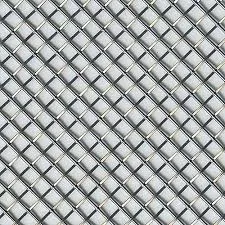-
+86 15030157877
-
sales@galvanizedmetalmesh.com
Jul . 30, 2024 19:01 Back to list
Exporter of High-Quality Metal Mesh for Supporting Climbing Plants and Garden Landscaping Solutions
Exporting Metal Mesh for Climbing Plants A Growing Opportunity
In recent years, the gardening and landscaping industry has seen a notable trend towards the use of climbing plants to enhance outdoor spaces and improve aesthetics. As a result, the demand for specialized structures and equipment that support these plants has surged. One of the most popular solutions is the use of metal mesh for climbing plants, which serves not only functional purposes but also adds a modern twist to garden design. This article explores the key aspects of metal mesh for climbing plants and the opportunities it presents for exporters in this niche market.
The Versatility of Metal Mesh
Metal mesh is an incredibly versatile material that comes in various forms, including wire mesh panels, grids, and frames designed specifically for supporting climbing plants. Typically made from durable metals such as steel or aluminum, these meshes offer both strength and resilience, making them ideal for outdoor use. The open structure of metal mesh allows for optimal air circulation and sunlight penetration, which are crucial for the healthy growth of climbing plants. Additionally, the various styles and finishes available make it easy to integrate these features into any garden design.
Benefits for Climbers
Climbing plants, like ivy, roses, and beans, thrive when they have adequate support to grow upward. Metal mesh provides a robust framework that encourages vertical growth while reducing the risk of damage that may occur with weaker supports, such as wood or plastic. Furthermore, metal mesh can be designed to fit into various settings, whether it’s a residential garden, a commercial property, or even urban landscapes. This adaptability makes metal mesh an essential item for gardeners and landscapers looking to maximize the potential of climbing plants.
Market Potential for Exporters
metal mesh for climbing plant exporter

As more individuals and businesses recognize the benefits of climbing plants, the market for metal mesh is expected to grow significantly. Exporters can tap into this trend by developing high-quality metal mesh products that meet the diverse needs of global customers. The growing preference for sustainable and eco-friendly landscaping solutions also presents an opportunity, as metal meshes are often made from recyclable materials, appealing to environmentally-conscious consumers.
Countries with rich horticultural traditions, such as the United States, Germany, and the Netherlands, are prime markets for exporting metal mesh for climbing plants. In these regions, homeowners are increasingly investing in gardens that feature greenery, leading to higher demand for materials that support this growth. Additionally, as urban environments become more populated, the integration of green spaces and climbing plants in cities creates an even greater need for reliable support structures like metal mesh.
Challenges and Considerations
While the potential for exporting metal mesh for climbing plants is promising, there are challenges to consider. Exporters must navigate different regulations regarding agricultural products in various countries, ensuring compliance with local laws. Quality assurance is crucial, as plants and gardening enthusiasts are likely to seek durable and aesthetically pleasing supports that withstand the weather conditions of their respective regions.
Furthermore, effective marketing strategies need to be in place to reach potential buyers. By showcasing the versatility and benefits of metal mesh through digital platforms, trade shows, and gardening expos, exporters can effectively promote their products to a broader audience.
Conclusion
In conclusion, the export market for metal mesh for climbing plants is a burgeoning sector with immense potential. As gardening enthusiasts and professionals alike recognize the importance of supporting climbing plants, the demand for durable, versatile, and aesthetically pleasing materials will likely continue to rise. By understanding market needs, overcoming challenges, and implementing effective strategies, exporters can successfully position themselves in this growing industry, contributing to a greener and more beautiful world.
-
Premium Roof Tiles for Durable & Stylish Roofing Solutions
NewsJul.30,2025
-
High-Quality Roof Tiles for Durable & Stylish Roofing Solutions
NewsJul.29,2025
-
High Quality Square Wire Mesh Manufacturer & Supplier for Wholesale
NewsJul.29,2025
-
Premium Roof Tiles for Durable & Stylish Roofing Solutions
NewsJul.29,2025
-
Hexagonal Gabion for Slope Protection & Retaining Walls | Durable Wire Mesh
NewsJul.29,2025
-
3D Curved Welded Wire Mesh Fence for Secure & Stylish Fencing Solutions
NewsJul.28,2025



